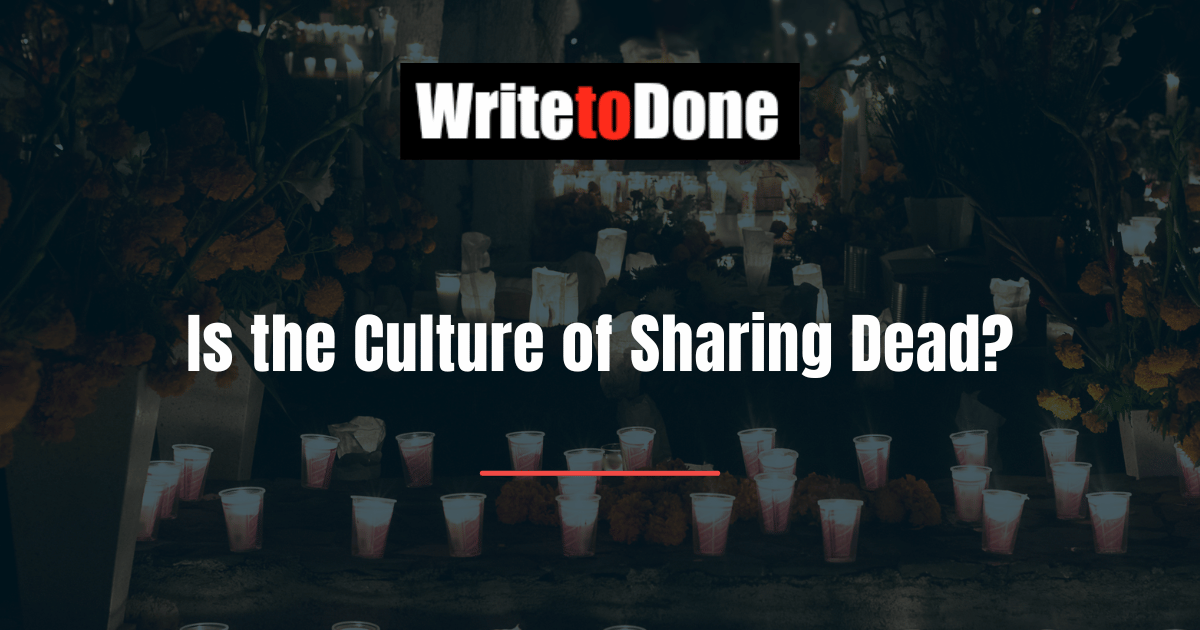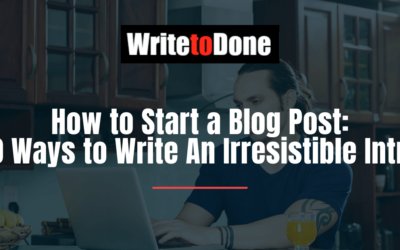Leo Babauta wrote this post a number of years ago and it still remains controversial to this day. Is the culture of sharing dead? Would you uncopyright your work…
Recently I stirred up a roar of controversy with a post at Zen Habits: Feel the Fear and Do It Anyway (or, The Privatization of the English Language). I had no idea the post would bring out such strong reactions in people, but I feel very strongly about freedom of speech and allowing ideas to be freely circulated.
And while I was a bit dismayed at some of the anger that was aimed at author Susan Jeffers (a number of people posted angry reviews for her book on Amazon), what did give me hope was that people made it clear that they have strong feelings about the issue.
A large number of us want people to be able to share ideas and communicate freely, without legal restrictions. And I’d go even further: we like it when creative people freely share their work with us, and allow us to use their work (or derivatives of it) in our own work.
This is the Culture of Sharing that is growing on the Internet. It has a long history, even pre-dating the Internet, but in recent years it seems to be blooming nicely. Open-sourced software is a great example: people collaborate to create code that can be used by others — it can be used freely as software, but more importantly others can use the code in their own software projects, or take the code and improve upon it. Everyone wins — the users of the software, the programmers who are able to use open-sourced code, and even the original programmers, who receive recognition for their work and the knowledge that they’ve contributed to something good. Microsoft and the other companies that use their might to protect their code are suddenly made much less powerful by open-sourced projects like Firefox, OpenOffice, GIMP and the like.
Now extend this concept to writers and other artists — musicians, photographers, painters, filmmakers, etc. — and see how powerful the Culture of Sharing can be. All of a sudden, copyrights become barriers to creativity, and sharing becomes a way to contribute to the overall creative community, and to the world in general.
Last year I Uncopyrighted my blog, Zen Habits, and my ebook, Zen To Done, and it was one of the best things I’ve ever done. People have used my articles in blogs, newsletters, magazines, ebooks, books and more. And yes, they’ve made profits off me without me getting any of that money … but at the same time, I’ve benefitted: my ideas have spread, my name and brand have spread, and my readership has grown and grown. Since I Uncopyrighted the blog, it has grown from about 30K subscribers to 113K.
You can Uncopyright your blog, your ebooks, and even your print books. And I can almost guarantee you: it’ll be the best thing you can do as a writer.
The Old Model, and Why It’s Wrong
People who are used to the traditional model of copyrights will be alarmed and perhaps even angered by this article. They’ve been taught that copyrights actually protect the rights of artists, and in doing so actually encourage creativity. After all, if an artist doesn’t have copyright, he can’t make a living, and what would his motivation be to create anything then?
This logic is plain wrong.
First, history proves it wrong. Copyright laws originated in the 1700s, but amazingly, there were a few people who were able to create works of art without the protection of copyright laws. Shakespeare, Milton, Cervantes, Virgil, Dante … to name but a few big names. There are, of course, thousands more. And here we’re only talking about writers — a few other artists also were able to create art: da Vinci, Michaelangelo, Mozart, Beethoven and Vivaldi are just a few who created before their works were protected by copyright.
Second, copyright has evolved into protection for corporations more than for artists these days. The people really pushing for copyright protection are not really people at all, but huge media conglomerates. They are protecting a system that is set up to make them money, but that only helps a handful of artists. The vast majority of artists are never read or seen or heard by the public, because the corporations don’t deem them to be profitable enough. So the system doesn’t help artists anymore — it hurts them.
Third, I have proven that it’s possible to make money, even today, without using copyright. And so have many others (Cory Doctorow being a notable example). The release of my copyright didn’t decrease my income — it increased it. It didn’t decrease my exposure — it increased it. We’ll talk more about this below.
Finally, copyright actually hurts artists, instead of protecting them. When you try to protect your copyright, you waste precious time and money pursuing violators — time and money you could be using to create instead of threaten litigation. When you protect your copyright, you are denying someone else the use of your ideas and creativity — which might seem good to you, but it doesn’t seem good to the person on the other end, and the community in general suffers a bit. And it hurts your reputation (if people think you’re selfish and protective) and stops your ideas from being spread as widely as possible.
By protecting your copyright, you are putting up barriers for the spread of your ideas. In this digital age, that is a mistake, plain and simple.
Why Releasing Copyright is the Smartest Thing You Can Do
So let’s put aside the old model of copyrighting works for a minute, and ask ourselves: “What might happen if I release my copyright?”
Seriously, think about it for a second.
Sure, some websites might scrape your content, re-using it and putting ads on it — making money from your hard work. And sure, someone else might throw it into a book and sell it, without paying you. You’re losing money, right?
Not necessarily. These people are making money by selling your work to customers you probably wouldn’t have reached anyway. They’re making money, sure, but how does that hurt you? If you could have reached these readers, you probably will anyway. In fact, if these readers really like your work, they’ll probably come looking for more … and you’ll gain a bunch of new readers.
And many others might use your work without making a profit. They might put your work in a free newsletter, or print it and use it in a classroom, or put it on their blog without making money. They’ll share your ideas with others, and give you credit. Now you’re reaching thousands of people you never would have reached before. These people are doing your marketing for you, for free!
I’ll repeat that in case the italics and exclamation point weren’t emphasis enough: by releasing copyright, you might get people to do your marketing for you, for free.
This digital age is defined not by how much money you can make with an individual post or book, but how widely you can get your ideas to spread. If you get your ideas to spread widely, you’ll make money. Somehow.
But how can you make money if you don’t have copyright? Let me count the ways:
- You can sell ads and make money off the increased visitors that come from your increased reputation.
- You can sell print versions of your book (after releasing an Uncopyrighted ebook version), and people will buy it anyway, because they like to have print books.
- You can become a consultant and people will hire you because you are widely regarded as having authority in the field … because your ideas are spread widely.
- You can sell ebooks (as I do) even if the copyright has been released. Most of my website income, in fact, comes from sales of my Uncopyrighted ebooks.
- You can gain a print book deal from your increased readership and reputation.
- You can become a speaker at conferences and other events.
- You can create seminars and other training courses.
- You can sell related materials — t-shirts, coffee mugs, learning materials, etc.
And that’s just off the top of my head. You can probably think of a hundred other ways. And it’s not only theoretically possible — as I said, I’m doing it now, and making more money than ever.
But wait, there’s more.
Releasing copyright isn’t just about making money off your creative work — it’s much more powerful than that. It’s about sharing your ideas with others, and allowing them to use it in their work.
Think about this for a second: none of your ideas are completely original. Mine sure aren’t. I take the ideas of others and build upon them. I try to create new ways of looking at old ideas. I combine old ideas in new mixes. Sometimes I just dust off old ideas that people have forgotten about. Sometimes they’re only new to me — I just discovered them and tried them out and found they worked, but they’ve been around in many forms for ages. All creative work is like this in some way. We take the ideas of others and build upon them, remix them, look at them in new ways.
If this is true, aren’t you indebted to so many other creative types? Would you have been able to create your work at all if you hadn’t been exposed to the works of thousands of others? Could you have created anything without using the ideas of others in your work?
And now think about this: by giving your work to others to use, isn’t this a wonderful way to repay the creative types that came before you and made your work possible? Isn’t it a great way to contribute to the creative community, and to make the world better?
I love to see how others take my work and build upon it, remix it, make it better. They have made my work more beautiful. And in doing so, in benefiting and participating in the Culture of Sharing, they have made the world a better place. And so have I. And so can you.
So let’s talk specifics, briefly. By releasing copyright, you will have a few benefits come your way:
- Others might take your work and use it and spread it in various ways.
- New readers will hear of you for the first time, and come to your blog or buy your book.
- You will have increased visibility, a stronger brand, more readers, more traffic over the long haul.
- You will make more money.
- You will help others create, and make the world a better place.
None of this is guaranteed, but if your work is good, it will almost surely happen.
The Mechanics of Releasing Copyright
So how should you do it? There are several different ways to share your work with the world. Some of the most popular:
- Creative Commons. One of the most widely used licenses, it commonly requires only attribution. There are several versions.
- GNU. The inspiration for my Uncopyright. For text, you should probably use the GFDL.
- Leo’s Uncopyright. Mine is one of the freest licenses ever, because I don’t believe in any restrictions. Basically, I have released my work into the public domain. That means there is no license — you aren’t required to include the license in the work, or attribute the work (although I love it when you give me credit).
- WTFPL. Or, the Do What The Fuck You Want To Public License. Hilarious, but usable. Check it out. Here’s the full text:
0. You just DO WHAT THE FUCK YOU WANT TO.Very clear wording, imo.
Image courtesy of Pixabay

















